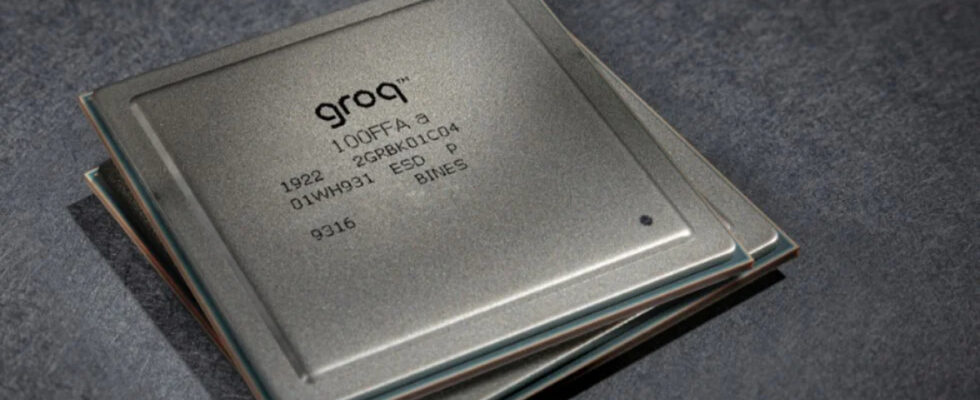Nvidia is at the top of its game, notably thanks to the advent of artificial intelligence. Moreover, the financial results have just confirmed a record end to the fiscal year, with turnover up 22% in the fourth quarter of 2024 compared to the third. Even more telling, revenues are up 265% year-on-year.
However, competition is becoming organized. For several months, a start-up has been making headlines: Groq. The latter claims to produce chips dedicated to AI offering greater computing power than those from Nvidia. To achieve its goals, the company has developed a new chip architecture called LPU (Language Processing Unit). Engraved in 14 nanometers, this component has the sole objective of running the different models of artificial intelligence languages, including the emblematic ChatGPT.
Jonathan Ross, founder of Groq, explained to IT world in January 2024 that the LPU consumed fewer resources than a traditional processor, while offering much higher performance. Thus, the generation of responses is much faster than with a traditional processor or graphics card.
For comparison, the boss of Groq explains that its GrogChip LPU can generate up to 400 tokens per second, compared to 100 on a standard processor. However, it is necessary to accumulate a large number of chips to achieve the performance of Nvidia’s graphics cards.
It remains to be seen how this project will evolve in the months to come, and whether it will ultimately be integrated into infrastructures or devices to increase the performance of generative artificial intelligence.
One thing is certain, this solution should interest the main players in AI, who are also considering making their own chips. An article published by Reuters in late 2023 indicated that OpenAI was considering creating its own dedicated chips. Bloomberg also returned to the subject in January 2024, specifying that Sam Altman was seeking to raise $100 billion in order to create a network of foundries across different regions of the world. If this ambition comes to fruition, OpenAI could in the future abandon the Nvidia GPUs used to run ChatGPT.
